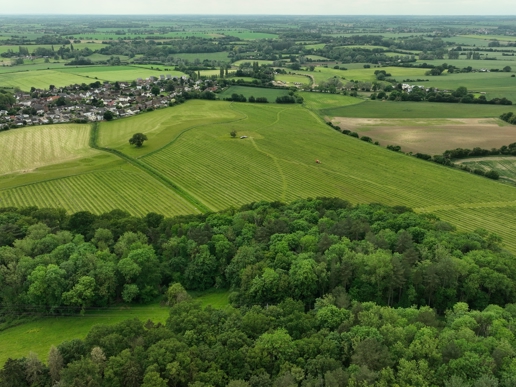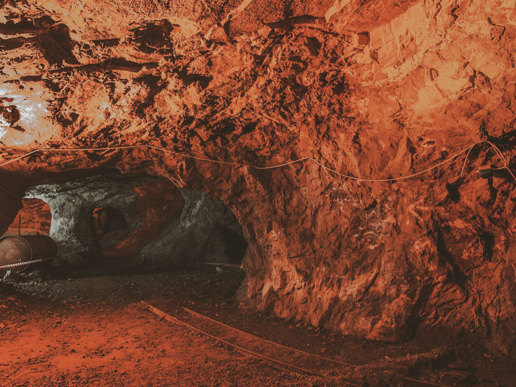Thinking of selling? We’ve been there

Reproduced with permission from The Times Enterprise Network. To subscribe click here.
It’s a question every entrepreneur or business owner comes to sooner or later: what’s the exit strategy? Has the time come to sell?
Indeed, increasing numbers of owners may be contemplating this right now. Given all the Covid-19 challenges of the past couple of years (and Brexit too, for some), along with an uncertain economic outlook, rising costs and supply chain pressures, it would be no surprise if many owners were standing back and thinking: “Perhaps 2022 is the time to sell up and make a clean break.”
Fourteen years ago at the beginning of 2008, Kim and I were in just such a position. We had bought Ground Control in 2004. We did so with a clear five-year plan to acquire the business, grow it and then sell. So when 2008 came round, we felt the time was right to put our plan into action and begin the sales process. Steve, the former owner, who had retained a 25 per cent stake, and I both felt that there were some serious economic storm clouds on the horizon and now would be a good time to cash out while valuations were still very high.
We put the process in motion. We appointed advisers to draw up the prospectus and market the business and they promised us that it would all be complete by the summer. This did not quite happen to the anticipated timescale but by late summer of 2008 the offers had started to come in. In fact we had three parties interested, all offering about £35 million to buy the company.
All good, you may think. But in fact, Kim and I had started to have second thoughts. Two things vividly stand out to me. First, I was introduced to the prospective managing director that one private equity house planned to appoint if they were the successful bidder. When asked by our finance director what he hoped to bring to the business, he bragged about his connections on the golf course. Frankly, my toes curled. We had grown the business based on hard work and honest first-class service delivery to clients. It hardly felt like a cultural fit.
Second, every autumn we hold an event for clients and staff at the Tower of London, whose grounds we have maintained for more than 30 years. That year Kim and I realised with full force as we mixed and mingled with everyone around us that we had in fact become very emotionally attached to the people we worked with. We had a fantastic team: did we really want to take the money and walk away?
One thing any business owner will come to realise, however, is that once you start a sales process it is extremely hard to stop it. Things gather their own momentum and there are contractual clauses that tie you in. We would have had to pay our adviser, BDO, some substantial success fees if we decided to take the business off the market.
As it turned out wider events took over. Lehman Brothers collapsed into bankruptcy in September 2008 triggering the start of the global financial crisis. Market conditions radically changed. The sale in effect cancelled itself, with no penalties.
Kim and I recommitted ourselves completely to the business and along with the senior management team formed a long-term plan: our “2020 vision”. We made it clear to clients and staff that we were not going anywhere; we were in it for the long haul. We also refocused on long-term value drivers for the business and invested more in people and increased employee share ownership. Knowing that we were now going to own and run the business for the long term allowed us to also really focus it on things that we cared passionately about, such as caring for our environment.
We have never looked back and have ended up beating the targets we set back then. We have grown the business far beyond what it was in 2008. Revenue has grown six-fold and profitability with it. We have retained key clients and added many more.
Most importantly we have built and expanded a fabulous team. We have set up a number of other important initiatives such as our Evergreen Fund, which invests in a green future. We employ many more staff, who are all shareholders in the business, as well as independent field service teams. We are proud to provide ground maintenance services to our clients across 55,000 sites around the UK and this winter look after more than 11,000 gritting and snow clearance sites.
So, my advice for owners right now is quite simply: think really hard. Be prepared for external changes in the market that could affect your plans.
Do not overlook how attached you may actually be to your business. Think about the long term too. If you sell the business, what are you actually going to do? You are probably going to start a new venture, but why do that when you can probably stay inside your present business and keep growing that instead? Even if multiples of five to ten times profitability are being offered, if you do a discounted cash flow calculation, the value you get now will never be worth what you would accrue over the long term if you can grow your business 10 per cent or more per annum. Do the maths carefully.
Everyone has different circumstances, priorities and motivations. For some, selling up will be the best thing to do. For Kim and I, getting close to the point of no return was actually the catalyst for realising that we had found our long term future. We are so pleased it turned out that way and plan to remain with Ground Control long into the future.

Welcome to Wildfell






